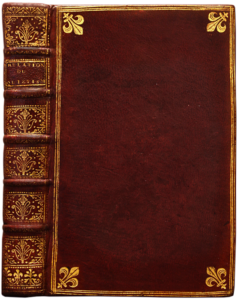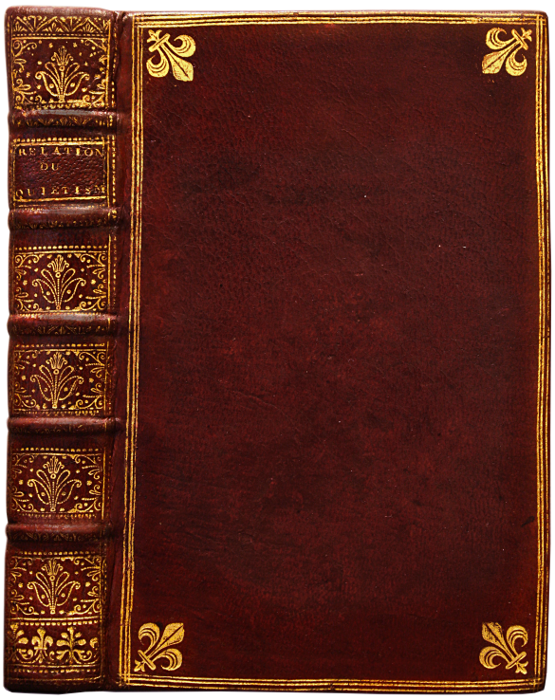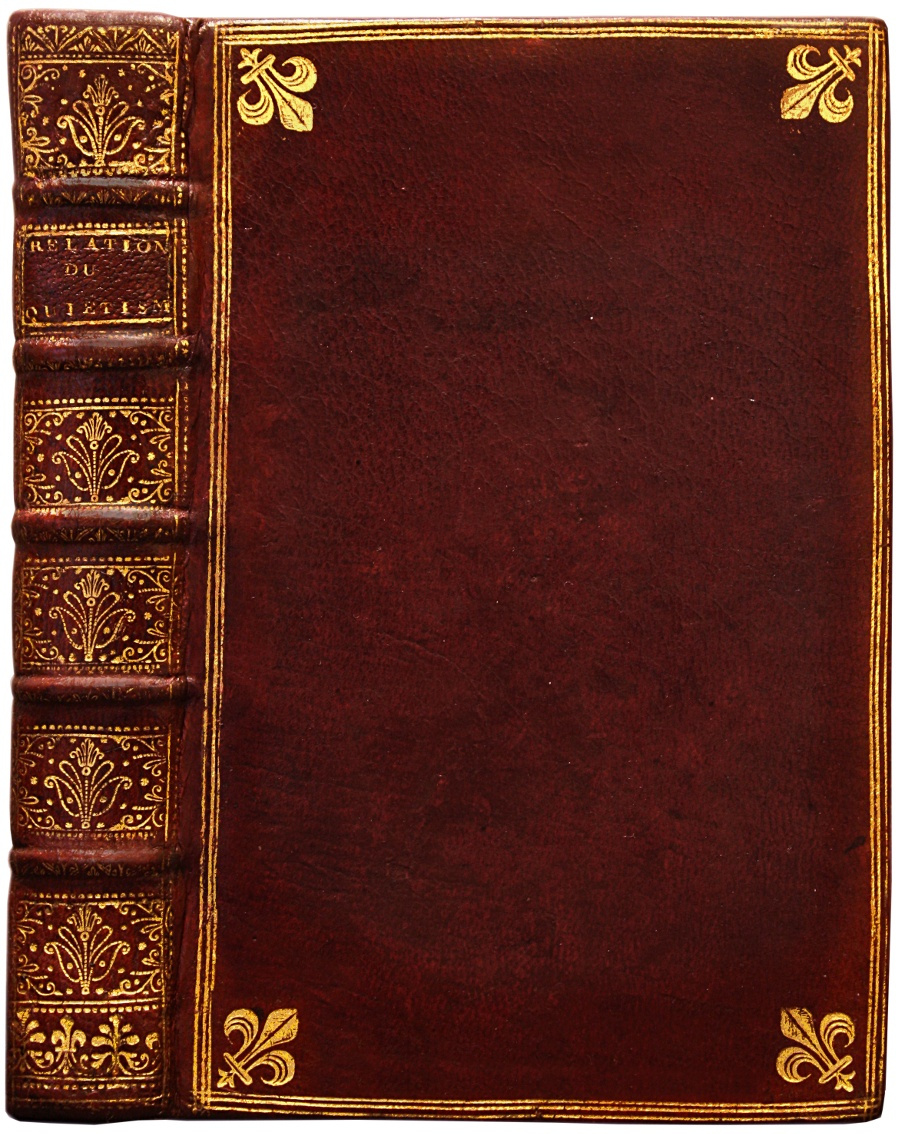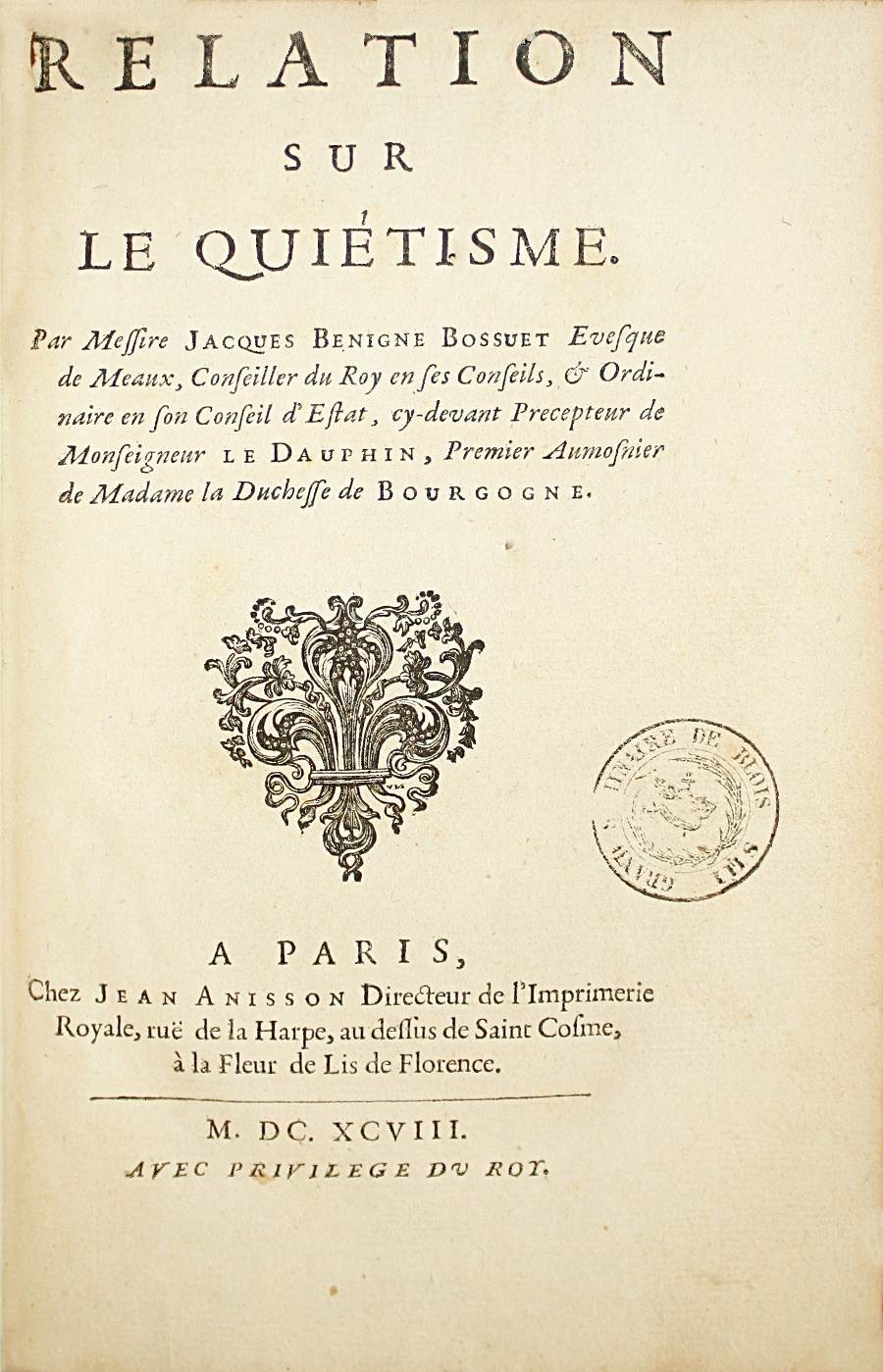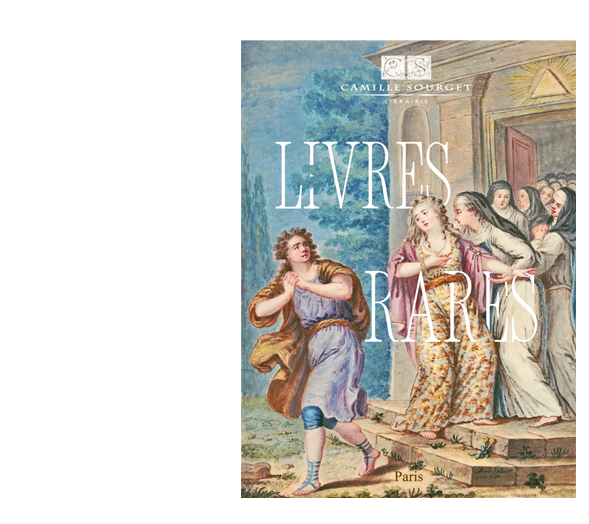Paris, chez Jean Anisson, 1698.
2 parts in one 8vo volume [185 x 115 mm] of: I/ (2) ll., 148 pp.; II/ (6) ll., 239 pp., (1) p. of errata. Small lacking in the upper corner of a p. not affecting the text, barely visible perforation in the blank lower margin of the 10 first pp. Bound in full contemporary red morocco, triple gilt fillet on the covers, gilt fleur-de-lys in the corners, spine ribbed and richly decorated, border with a stamped fleur-de-lys at the foot of the spine, inner gilt border, red edges. Old and plain restorations to the binding. Contemporary biding.
Rare reunion of two polemic texts by Bossuet in first editions, composed during the quietism’s quarrel that opposed him to Fenelon. Tchemerzine, I, 879 & 882; Brunet, I, 1138; Bibliothèque Rahir n° 336.
Quietism is a mystical doctrine considering that the most perfect communion with God only happens when the soul is in a quietude state. The quarrel that opposed the quietists to Bossuet takes shape in this work where the latter refutes really violently all the arguments of the quietists at the head of which Fénelon was.
“Within Catholicism, other trends emerge. One goes in the mystic-sentimental sense and offers a religion of the heart, passively given to the divine love: it is quietism, defended by the archbishop of Cambrai Fénelon (“Explications des Maximes des Saints”, 1697) and popularized by Mme Guyon in her “Spiritual torrents” that advocate the annihilation of the willpower and the abandon to ecstasy […]. Against all these internal and external tendencies, Bossuet leads an exhausting fight, where he stands up to modernity that he judges impious. He strikes Fénelon down, and have him condemned in Rome; Mme Guyon is locked up then interned.” Peter-Eckhard Knabe, L’aube de la modernité, 1680-1760, p. 434.
This very rough exchange between the two great orators of the 17th century had to end in 1699 with Bossuet’s triumph who obtained that Fénelon was kept away from court, and his condemnation by the Holy See.
This polemic happens at the very moment when Fénelon’s influence in Court was unprecedented. Impressed by his piety, Louis XIV had just consented in 1689 to entrust the education of his grand-son into his care, whereas he knew Fénelon hostile to his ideas on the government and the Kingdom. At the same time, the archbishop of Cambrai had just adhered to quietism under the influence of Madame Guyon. This new doctrine that put as supreme virtues the tranquility of the soul and its fusion with God was soon to be condemned by the Catholic Church for its mystical excess.
“It is a document of fundamental importance about the fight that led the bishop of Meaux against Quietism and against its main defendant Fénelon”. (Dictionnaire des Œuvres, V, 698).
A precious wide-margined copy, preserved in its contemporary red morocco binding decorated with fleur-de-lys.
Provenance: Grand Séminaire de Blois (stamp on the title leaf).
See less information
